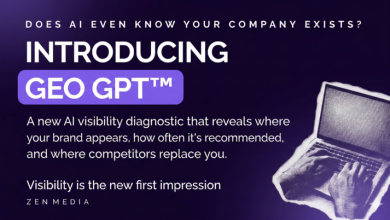
Organizations across all industries have experienced rapid adoption of AI tools after years of assessing their potential. As these organizations move beyond generative AI (GenAI) tools with relatively simple use cases, like text summarization, they must begin to prepare for AI agents.
The truth is that many organizations aren’t prepared for the shift that AI agents will bring. Unlike chatbots or GenAI models, AI agents act autonomously, make decisions and collaborate with humans. The latest technology innovation is poised to completely reshape IT operations.
But deploying AI agents isn’t a plug-and-play solution that will solve all of the problems facing ITOps teams. Poor implementation and understanding will create inefficiencies, introduce risk and stall innovation.
There are three hard truths IT and business leaders must face as they navigate the shift to AI agents.
1. Effective AI integration requires a leader-driven culture shift
Change can often be led by either practitioners or leaders. In many cases, practitioners such as engineers are the first to experiment with new tools and lead change as they spread them to their wider teams. However, when it comes to AI agents, the shift in how organizations will operate will be so significant that change must be driven by IT and business leaders, including the AI-savvy practitioners in the loop.
AI agents offer a major opportunity for businesses to become more efficient. The potential for increased operational efficiency should entice business leaders to promote the use of AI agents throughout their organization. Similarly, IT leaders can lead the wider business in adopting AI agents by demonstrating the most relevant use cases and becoming trendsetters for their peers. It is only through both of these leaders promoting the use of AI agents that the adoption of these tools will gain momentum.
A joined-up approach is crucial. IT leaders have the use case-specific knowledge to demonstrate the tangible value that AI agents bring. They can then ensure that benefits of AI agents can be communicated upwards to the CEO and board members, helping to generate hype.
However, this hype cannot be the end stage for adoption. It must also drive a culture shift.
A new mindset is needed, one that requires employees at all levels of the organization to know how to use AI agents, and that they are willing to change the way they work. However, changing a company-wide culture is highly challenging. This level of change requires flexibility and a high level of willingness to adapt existing processes. An adaptable mindset must be driven by those in leadership positions, who must lead change across the organization.
3. AI agents provide a major opportunity to innovate, but need time
Present-day hype cycles often create demand for quick results. Shiny, new tools are expected to work straight out of the box and provide immediate value.
For bleeding-edge technologies, however, this cannot always be the case. In the case of AI agents, while many use cases exist, no one has scratched the surface of what could be possible. What is certain is that these tools don’t offer a quick fix for existing organizational challenges.
To give AI agents a chance to bring organization-wide value, business leaders must give technical teams the time they need for experimentation. The extra runway will allow technologists to identify the best ways they can use AI agents as tools to improve internal processes, improve their products and grow their business. While this process promises eventual ROI, the benefits will not be immediate, and the goals of AI agent adoption must be clearly defined.
The combination of sufficient time with clear objectives and guardrails will help ensure that AI agents don’t become just another flashy, new tool or introduce new risk, but instead deliver meaningful, long-term value.
4. AI agents need to create ROI for AI investments
Throughout 2024, there was huge, widespread hype over AI tools.
As generative AI rapidly improved, it became more commonplace in the business ecosystem. However, these tools have limited use cases, such as content summarization and generation, despite the hype that accompanied them. AI agents, which can drive increased autonomous decision-making and improved human-AI agent collaboration, will finally bring the ROI that AI hype has promised.
AI agents create a strong opportunity for organizations to create value by improving their IT operations lifecycle. AI agents can reduce operating costs by automating common and recurring tasks for engineers, mitigate risk by resolving incidents faster and avoid drops in revenue by helping to maintain uptime. All of this will increase an organization’s resilience, ensuring it can stay online with minimal human input and helping to drive increased value.
The value that AI agents create is expected to be so significant that go-to-market strategies and pricing models are changing. In this new business ecosystem, organizations are likely to adopt an approach similar to Salesforce, which is shifting to charge by outcome rather than by seat. This will enable greater flexibility and reduce operational costs to allow businesses to optimize their technology investments and increase profitability.
A positive step, but not an easy one
Given the opportunity that the adoption of AI agents present, organizations must urgently start laying the groundwork to adopt these transformative tools. The preparation and the accompanying adoption phase will not be easy. A concerted shift in culture, adequate time for implementation and clear, ROI-driven objectives for the use of AI agents are all necessary to have a transformative effect on a business.
By bearing these three things in mind, organizations can find themselves adequately prepared for AI agents and put themselves on the best footing to finally reap the benefits long promised by the AI hype.





